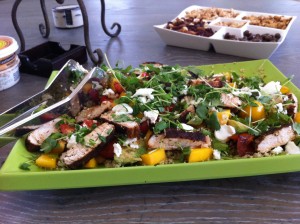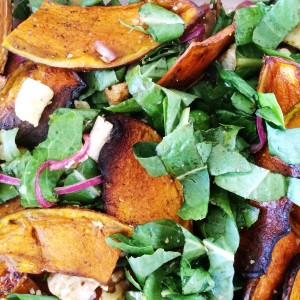Unless you’ve been hiding in a cave (pun intended) chances are you will have heard of the Paleo Diet. Everywhere you turn it seems there is a new celebrity endorsing the diet, another friend or family member “going Paleo” and many more on social media sharing Paleo recipes and preaching about its benefits.
But many people are still confused about what it is so we thought we’d put together a back-to-basics post to describe what the Paleo Diet is and explore the common myths surrounding this diet.
What is Paleo?
According to biochemist Robb Wolf who wrote the popular book “The Paleo Solution” our modern diet filled with refined foods, trans fats and sugar is the leading cause of diseases such as obesity, cancer, diabetes, heart disease, Alzheimer’s and depression. Thus the Paleo Diet looks to ancestral wisdom and our genetics for guidance on what to eat and how to live as our modern diets are not serving us the way they ought to.
Therefore, the focus of the Paleo diet is:
- to eliminate the ‘modern diet’ of processed and manufactured food products
- to avoid grains, legumes and refined sugars and dairy that offers little by way of nutrients and has dominated our modern diets
- to promote a holistic way of eating that includes whole, nutrient-dense foods
- increase intake of fruit and vegetables rich in antioxidants, vitamins, minerals and phytonutrients which help combat degenerative diseases such as cancer and diabetes
- eat lean meats, free range poultry, seafood and grass fed meat that provides essential protein for strong muscles and healthy bones
- eat healthy monounsaturated and Omega-3 fats from nuts, seeds, avocados, olive oil to reduce instances of obesity, heart disease and cognitive decline
What the Paleo Diet is NOT
The Paleo Diet’s increased popularity has opened itself up to scrutiny and many of its advocates believe that it is being misrepresented and misunderstood. Its’ most common myths are:
- it’s about eating large quantities of meat because it’s linked to the old hunter-gatherer lifestyles and ‘cavemen’ diets when in fact, it is less about eating protein and more about eating whole, unprocessed food such as fruit and vegetables, nuts and seeds and lean meat.
- the diet promotes a return to the Paleolethic era when in fact, most in the Paleo community don’t wish this at all and only agree that we have a genetic predisposition for certain foods based on how our ancestors ate and lived
- that it is about eliminating carbs which is untrue because there is plenty of carbs in fruit, vegetables, nuts; it just encourages you to avoid refined carbs found in grains and sugar
- Paleo is just a diet when most of the Paleo community would tell you that it’s more than a diet, it’s a lifestyle because it also encourages you to get enough sleep and exercise as this also affects health
Like so many diets before it, the Paleo Diet has been subject to much controversy. Recently well-known Paleo advocate celebrity chef Pete Evans has come under fire for writing a cook book entitled Bubba Yum Yum: The Paleo Way For New Mums, Babies and Toddlers as it contained a DIY baby formula recipe made of chicken bones and chicken but no recommendations to use breast milk or approved infant baby formula. There is also ongoing concerns about the diet’s suggestions to avoid grains and legumes: “Any diet excluding whole food groups should raise suspicions. The idea of cutting out grain-based foods and legumes is not backed by science and eating more meat than is needed by the body certainly has risks, according to the World Health Organisation” said chief executive of the Dietitians Association of Australia Claire Hewat in an interview with the Sydney Morning Herald.
Back to basics health advice & individual diet plans
Whichever side of the Paleo debate you fall on, the truth is that there is no single lifestyle or diet that will fit the needs of every single individual. What we can all agree on is that the Paleo Diet is on the right track with promoting the consumption of whole foods and avoiding processed foods and refined sugar. Whilst some people credit the Paleo Diet for highlighting this point, we prefer to call it by another term: common sense back-to-basics health advice.
At Vive Health we offer health advice and diet plans specific to your individual requirements, preferences and goals. While we often incorporate and recommend Paleo-type principles like eating wholefoods, our qualified Nutritionists and Naturopaths will recommend diet plans that are tailored to suit your individual needs. For further information on our personalised eating plans, don’t hesitate to contact us on 07 3399 1002.
Now over to you: Do you follow the Paleo Diet or are you a cynic? If you are a Paleo convert, what made you decide to explore this diet option? How does it compare with other diets you’ve tried? We’d love to hear your story so make sure to leave a comment.


